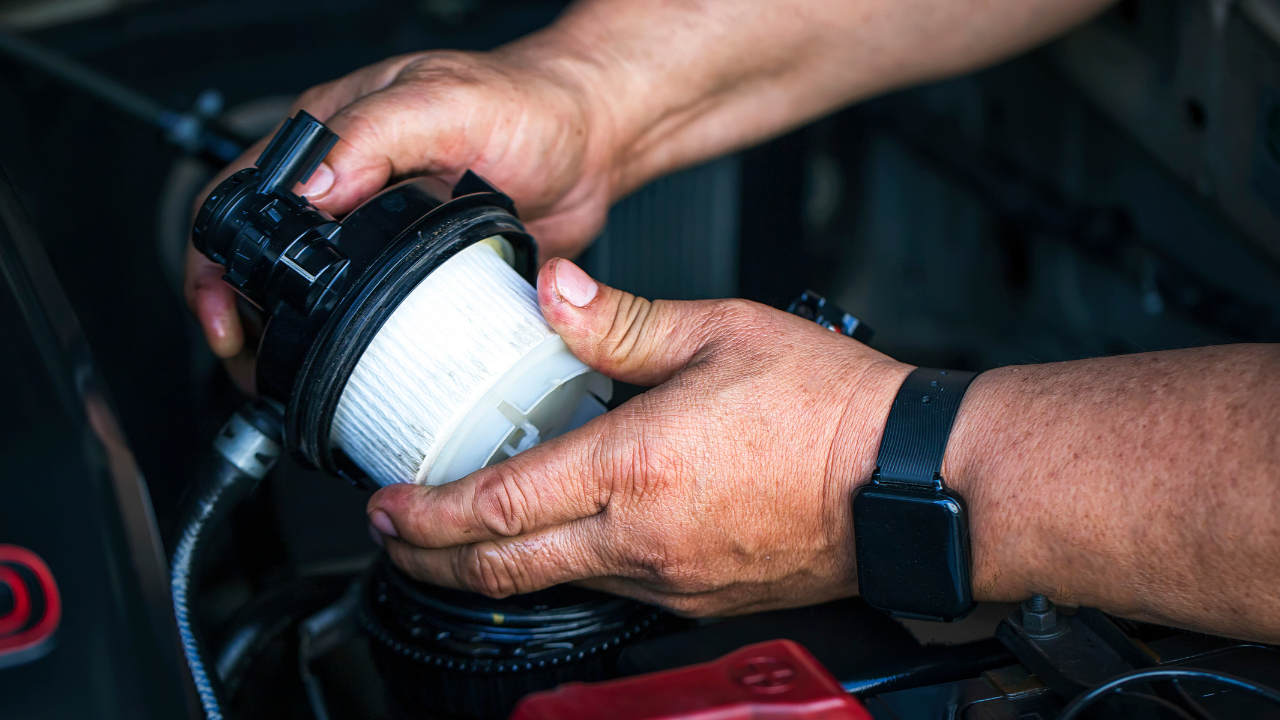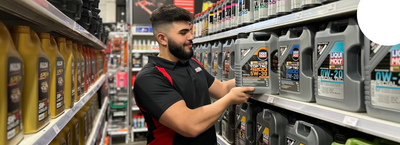The fuel filter is one of the most important components in your vehicle’s fuel system, yet it’s often overlooked during routine maintenance. It plays a critical role in ensuring clean fuel delivery to your engine by filtering out dirt, debris, and contaminants. Over time, the filter can become clogged, leading to poor engine performance and even serious mechanical issues.
So, how often should you replace your fuel filter? Let’s break it down so you can keep your engine running smoothly and efficiently.
What Is a Fuel Filter and Why Is It Important?
A fuel filter is a small but essential component in your vehicle's fuel system. Its primary function is to remove impurities from the fuel before it reaches the engine. These impurities can include:
✅ Dirt and Debris – Small particles from fuel storage tanks, gas station pumps, and your car’s own fuel tank.
✅ Rust and Corrosion – Metal fuel tanks can corrode over time, leading to rust particles mixing with the fuel.
✅ Water and Other Contaminants – Low-quality fuel or condensation inside the tank can introduce moisture into the system, potentially damaging engine components.
If left unchecked, a clogged fuel filter can restrict fuel flow, leading to engine hesitation, misfires, reduced fuel efficiency, and even complete engine failure.
How Often Should You Change Your Fuel Filter?
The recommended replacement interval for a fuel filter varies by vehicle make and model. However, general guidelines suggest replacing your fuel filter every:
🚗 32,000 to 64,000 km for most older vehicles.
🚗 80,000 to 120,000 km for newer vehicles with advanced fuel systems.
🚗 Every 2 to 3 years if your vehicle doesn’t have a specific mileage recommendation.
Manufacturer-Specific Recommendations
The best way to determine how often to change your fuel filter is to check your vehicle’s owner’s manual. Different manufacturers have varying guidelines based on their engine designs and fuel system requirements.
Example recommendations from popular automakers:
🔹 Toyota, Honda, Nissan: 64,000 to 96,000 km
🔹 Ford, Chevrolet, GMC: 80,000 km
🔹 BMW, Mercedes-Benz, Audi: 96,000 to 128,000 km
🔹 Diesel Engines: 24,000 to 48,000 km (fuel filters clog faster due to diesel fuel properties)
Signs Your Fuel Filter Needs Replacing
Even if you haven’t reached the recommended mileage, certain warning signs indicate your fuel filter may need replacement sooner:
1. Difficulty Starting the Engine
If your car takes longer to start or cranks multiple times before turning over, it could be due to a clogged fuel filter restricting fuel flow to the engine.
2. Engine Misfires or Hesitation
A partially blocked fuel filter can cause fuel starvation, leading to misfires, rough idling, and hesitation when accelerating.
3. Loss of Power, Especially Under Load
If your vehicle struggles to accelerate, particularly when driving uphill, towing, or carrying heavy loads, your fuel filter may be choking off the fuel supply.
4. Poor Fuel Economy
A clogged fuel filter can force the engine to work harder, reducing fuel efficiency and increasing fuel consumption.
5. Stalling at Low Speeds
A fuel-starved engine can stall, especially when idling or driving at low speeds. If your car suddenly shuts off, the fuel filter might be blocked.
6. Strong Fuel Smell
A damaged or leaking fuel filter can cause fuel odors inside or around the car, posing a potential safety hazard.
7. Check Engine Light (CEL) Is On
Many modern vehicles will trigger a Check Engine Light (CEL) when the fuel filter becomes too restrictive. An OBD-II scanner can help diagnose fuel system-related trouble codes.
Factors That Affect Fuel Filter Lifespan
Your fuel filter’s lifespan depends on several factors, including:
🔹 Fuel Quality – Poor-quality or contaminated fuel can clog the filter more quickly.
🔹 Driving Conditions – If you frequently drive in dusty areas, extreme weather, or stop-and-go traffic, your fuel filter may need replacing sooner.
🔹 Older Vehicles vs. Newer Models – Older vehicles tend to have external fuel filters, which require regular replacement. Newer cars often have in-tank fuel filters that last longer.
How to Replace Your Fuel Filter
DIY Fuel Filter Replacement (For External Filters)
For cars with an external fuel filter, replacing it is a relatively simple process. Here’s how you can do it yourself:
🛠 Tools Needed:
✔ Wrenches (or special fuel line disconnect tools)
✔ New fuel filter (OEM recommended)
✔ Safety goggles and gloves
✔ A small container to catch fuel spills
🔧 Steps to Replace an External Fuel Filter:
1️⃣ Relieve Fuel System Pressure – Remove the fuel pump fuse and start the engine until it stalls.
2️⃣ Locate the Fuel Filter – Typically found under the car near the fuel tank or along the fuel line in the engine bay.
3️⃣ Disconnect Fuel Lines – Use wrenches or fuel line disconnect tools to remove the old filter.
4️⃣ Install the New Filter – Ensure it’s installed in the correct direction (check the arrow indicating fuel flow).
5️⃣ Reconnect Fuel Lines & Start the Engine – Reinstall the fuel pump fuse and start the car to check for leaks.
Note: If your car has an in-tank fuel filter, it requires removing the fuel pump and is best done by a professional mechanic.
Frequently Asked Questions (FAQs)
1. What Happens If I Don’t Replace My Fuel Filter?
A clogged fuel filter can lead to engine damage, fuel pump failure, and costly repairs. It can also leave you stranded if the engine stops running.
2. Can a Bad Fuel Filter Cause My Car to Stall?
Yes, a restricted fuel filter can cut off fuel supply, causing the engine to stall unexpectedly.
3. Will Replacing My Fuel Filter Improve Performance?
Absolutely! A clean fuel filter ensures smooth acceleration, better fuel economy, and improved engine performance.
4. How Much Does It Cost to Replace a Fuel Filter?
✅ DIY replacement: $10 to $50 (external filters)
✅ Professional service: $50 to $150 (labor costs)
✅ In-tank fuel filter replacement: $200 to $500+ (due to labor-intensive process)
Final Thoughts
Replacing your fuel filter regularly is a simple yet effective way to keep your car running smoothly and prevent expensive repairs. If you notice any signs of a clogged fuel filter, don’t wait—replace it as soon as possible.
🔧 Need a new fuel filter? Browse our online store for top-quality, vehicle-specific fuel filters at great prices! 🚗💨









